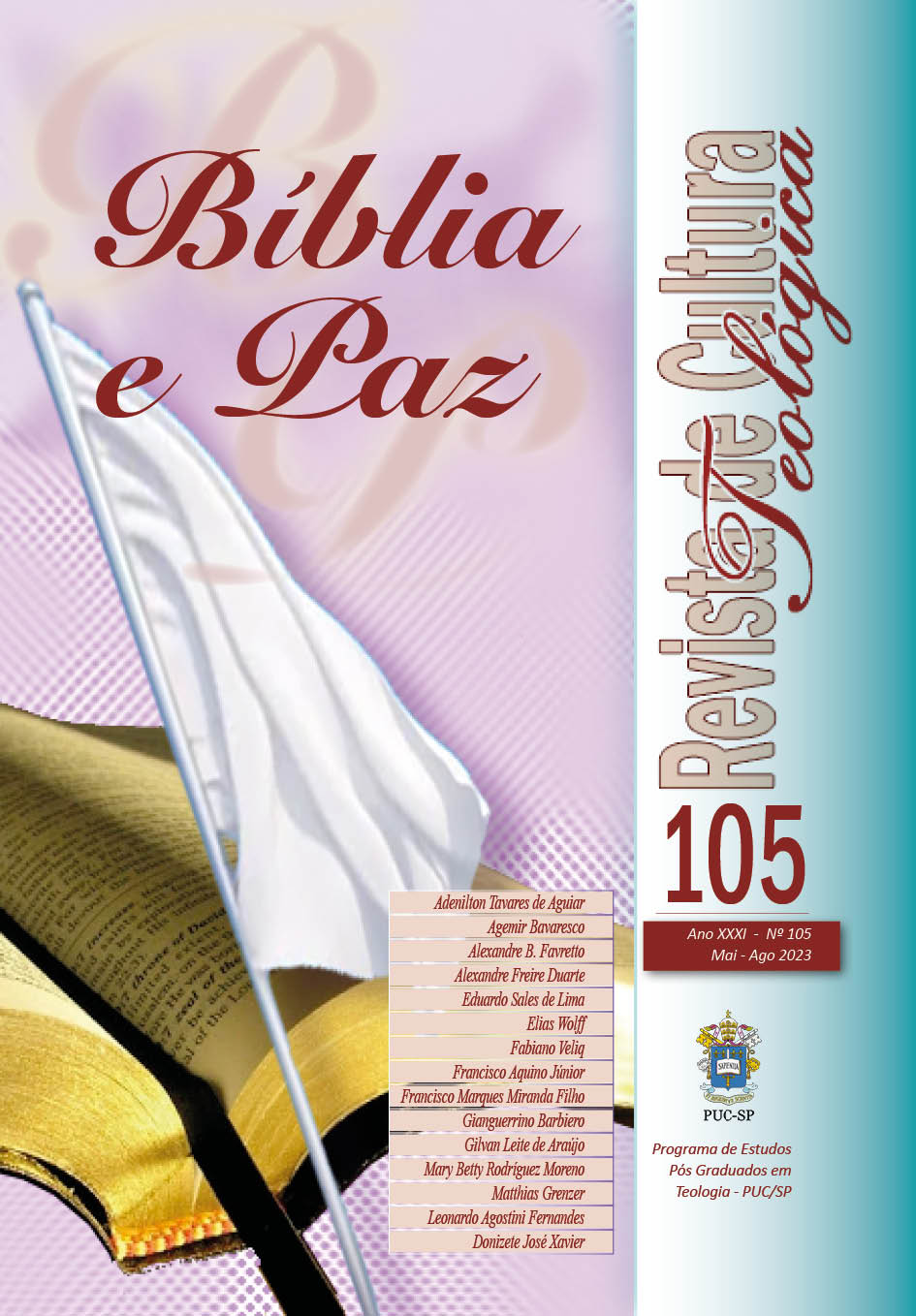Paul, and Border Theology
the post-critical episteme and the peace paradigm
DOI:
https://doi.org/10.23925/rct.i105.62979Keywords:
Hermeneutics, Bible, ColonialityAbstract
This mini-course proposes to dialogue with post-critical theories in order to identify valid hermeneutical possibilities for the interpretation of biblical texts in search of a paradigm aimed at promoting Peace. The objective is to read the bible from a post-critical perspective, specifically, through the frontier mentality. The research methodology will be exploratory, the data source, bibliographic, based on Glória Anzaldúa’s frontier theory. For the application of the methodology, some excerpts from the Pauline letters will be studied, and related to elements of the post-critical episteme. At the end of this work, readers are expected to identify Paulo as a frontier theologian, understanding his texts from the post-critical episteme in order to reframe a theology focused on dialogue and peace.
References
ANZALDUA, G. La consciência de la mestiza/Rumo a uma nova consciência. Estudos Feministas, Florianópolis, v. 13, n. 3, p. 704-719, set./dez. 2005
BAUMAN, Zygmunt. O Mal Estar da Pós-modernidade. Rio de Janeiro: Zahar Ed. 1998)
BARBOSA, Ana Clarisse Alencar; FAVERE, Juliana de. Teorias e práticas do currículo. Indaial: Uniasselvi, 2013.
BORNKAMM, Günther. Pablo de Tarso. Salamanca: Sigueme, 1978.
BALLESTRIN, Luciana. A América Latina e o Giro Decolonial. In: Revista Brasileira de Ciência Política, nº11. Brasília, maio - agosto de 2013, pp. 89-117.
DURÃO, Andressa; CHENIAUX, Eduarda. Demografia – Perspectiva Econômico-Social. ABRAPP, 2021. Disponível em <https://blog.abrapp.org.br/blog/artigo-demografia-perspectiva-economico-social-por-andressa-durao-e-eduarda-cheniaux-da-icatu-vanguarda/#:~:text=Em%201900%2C%20a%20popula%C3%A7%C3%A3o
%20era,7%2C8%20bilh%C3%B5es%20em%202020.>
FREIRE, Maria Geiza Ferreira et al.. Reflexões sobre o currículo: das teorias tradicionais às teorias pós-críticas. Anais VI CONEDU... Campina Grande: Realize Editora, 2019. Disponível em: <https://editorarealize.com.br/artigo/visualizar/62433>. Acesso em: 07/04/2023
JAMESON, Fredric. Pós-modernidade e sociedade de consumo. Revista Novos Estudos. CEBRAP. São Paulo, n.12. p. 16-26, 1985
KANT, I. Crítica da Razão Pura. Lisboa: Edição da Fundação Calouste Gulbenkian, 2001.
LYOTARD, J.-F. La condiciónpostmoderna. Informe sobre el saber. Buenos Aires: Cátedra,1991.
NOBRE, M. A Teoria Crítica. Rio de Janeiro: Jorge Zahar, 2004.
SANTOS, Boaventura de Souza; MENESES, Maria Paula (Orgs.) Epistemologias do Sul. São Paulo: Cortêz editora. 2013.
STENDAHL, Krister. Paul among Jews and Gentiles. Philadelphia: Fortress press, 1976.
SILVA, Shirlei da C. D.; RAMALHO, Wanderley. O pensamento complexo e as teorias das organizações: reflexões. In: Percurso Acadêmico, Belo Horizonte, v. 9, n. 17, jan./jun. 2019
Published
How to Cite
Issue
Section
License
Copyright (c) 2023 Revista de Cultura Teológica

This work is licensed under a Creative Commons Attribution-NonCommercial-NoDerivatives 4.0 International License.
Os autores concedem à revista todos os direitos autorais referentes aos trabalhos publicados. Os conceitos emitidos em artigos assinados são de absoluta e exclusiva responsabilidade de seus autores.

